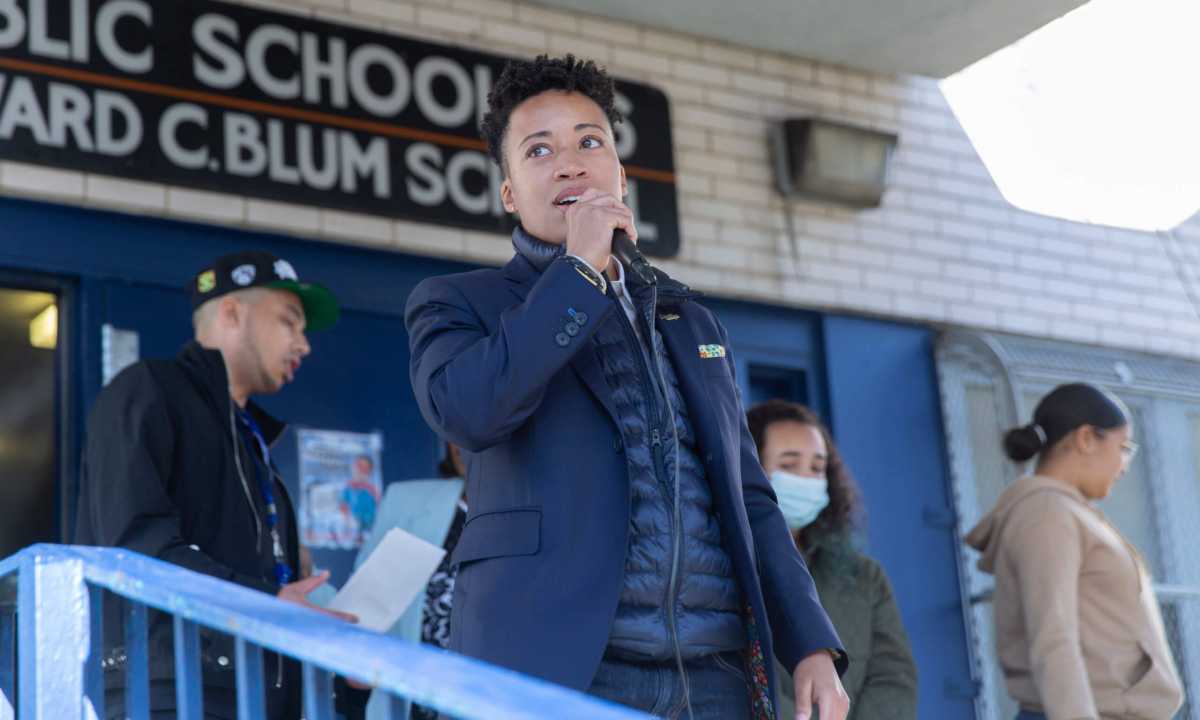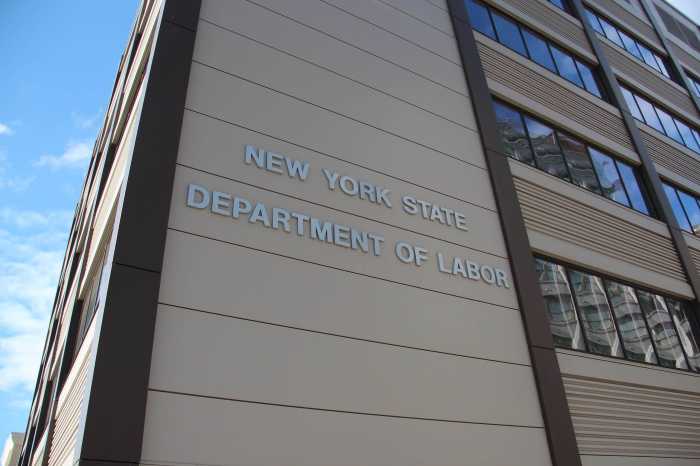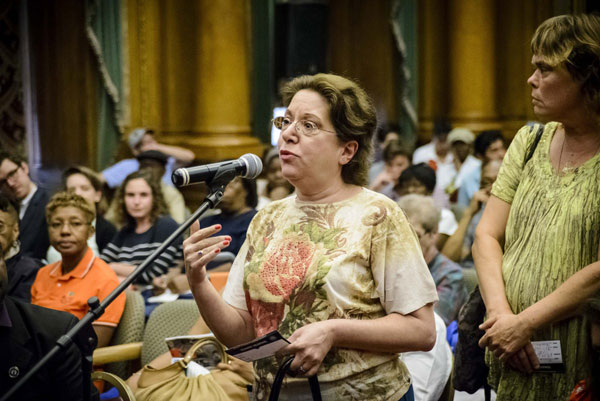Crystal’s Corner is a monthly column written by New York City Council member Crystal Hudson (District 35), Chair of the Committee on Aging.
Every New Yorker knows there are a handful of fundamental truths about living in the greatest city in the world: Times Square should be avoided at all costs, we have the best bagels, and your landlord is probably terrible. Horror stories of persistent leaks, ceiling collapses, and rodent infestations are all too common. To be clear, big, corporate landlords with several multi-unit buildings are disproportionately the problem, not smaller independent landlords who rely on rental incomes to get by.
Right now, our city doesn’t have the tools we need to combat bad landlords. The Top 100 Worst Landlords Watchlist isn’t enough in a city where landlord negligence and tenant abuse and harassment are the norm. In a city where our Office and Council offices across the five boroughs field hundreds of calls from constituents living in conditions that range from vermin-infested and moldy to leaky and cold.
Every year, we single out the landlords and management companies with thousands of open violations but lose sight of the banality of landlord negligence — the everyday gaslighting of our neighbors, and the impunity with which we allow predatory and unlawful practices to pervade in our communities.
Just two months ago, bricks plunged from the 33rd floor of Tivoli Towers in Crown Heights following the partial collapse of its facade. The management company responsible for the property allegedly ignored years of complaints from its tenants—folks who routinely asked the property manager to fix leaks and water damage in their homes to no avail. The facade finally collapsed after a years-long leak in a water tower on top of the building, putting hundreds of residents at risk of displacement.
At 1616 President Street, also in Crown Heights, dozens of tenants continue to face off against a notoriously negligent landlord where ownership of the property changed hands from one landlord named on the Top 100 Worst Landlords Watchlist, Jason Korn, to another landlord on the list, Robert Raphael of Gilman Management Corporation.
Combined, the management companies at both buildings have hundreds of open violations across their portfolios of dozens of buildings. Tenants living at their properties will tell you that violations marked as closed by the city’s Department of Housing Preservation and Development (HPD) or the Department of Buildings (DOB) are anything but fixed. While these issues are among the most egregious examples, housing advocacy group Churches United for Fair Housing (CUFFH) handled more than 2,700 tenant harassment cases and landlord negligence cases between 2020 and 2022, directly impacting nearly 6,000 New Yorkers. In the first few weeks of 2023, CUFFH has already seen more than 50 cases — a number that underscores the pervasiveness of these issues. So, what are we doing wrong?
The simple answer is that we’re doing almost everything wrong. The scope of our state housing laws by and large favor big landlords. We allow them to hide behind sham LLCs to avoid personal liability. We allow negligent management companies and their principals to retain properties despite repeatedly showing up on the Worst Landlord List. And, most simply, the city fails to meaningfully enforce any of these violations. We allow building owners to see fines levied against them as merely a cost of doing business. The health and wellbeing of our communities, though, has no cost.
Fines don’t work, and the conditions in which many of our neighbors live are criminal. And we should treat the neglect of our tenant neighbors as criminal by amending penal codes at the state level. We can take a page out of Los Angeles’ book and initiate programs for socialized housing, offering tenants the opportunity to cooperatively own their building if their landlord routinely fails to meet bare minimum requirements. These are tangible and meaningful solutions we can fight for in our legislative halls.
In the meantime, tenants can organize to create tenant associations. Folks can seek counsel from community based organizations, like CUFFH, IMPACCT Brooklyn, or Brooklyn Defender Services. And, of course, our Office is always a resource. We host a housing specialist from CUFFH every Wednesday from 12:30pm to 5:30pm and have monthly constituent service hours at the Brooklyn Public Library Central Branch with Brooklyn Neighborhood Services.
We can make these changes, let’s make it a priority.
To contact our Office with an issue, question, or concern, please email us at District35@council.nyc.gov. You can also give us a call Monday-Thursday between 9:30am – 5:30pm at (718) 260-9191.

























